#Trikephalo
Text

DeviantArt
Ko-Fi
Hydreigon © Nintendo / Game Freak
Picture © Elik-Chan
#Hydreigon#Trikephalo#サザンドラ#635#chalk#crayon#dark#drache#dragon#gen 5#generation 5#kreide#pokemon#unova#unlicht#einall#unova pokemon#chalkmon#einal pokemon
15 notes
·
View notes
Text
Hellenic Gods Fact Sheets and Hymns: Hecate
Other Names: Trivia, Brimo
Epithets: Anassa eneroi (queen of those below), Aidonaia (lady of the Underworld), Amibousa (she who changes), Atalus (tender, delicate), Borborophorba (she who feeds on filth), Brimo (angry, terrifying), Despoina (mistress), Eileithyia (of childbirth), Enodia (of the roads), Epaine (dread), Euplokamos (bright-tressed), Khthonia (of the Underworld), Kleidouchos (keeper of the keys), Kourotrophos (protector of children), Krokopelos (saffron-robed), Liparokredemnos (bright-coiffed), Nycteria (nocturnal; of the night), Nyctipolos (night-wandering), Perseis (destroyer/ daughter of Perses), Phosphoros (light bearer), Propolos (guide), Propylaia (the one before the gate), Scylacagetis (leader of dogs), Soteira (savior), Trikephalos (three-headed/of the crossroads), Trimorphos (three-formed), Trioditis (of the three ways), Trivia (of the three ways).
Domains: Witchcraft, magic, necromancy, ghosts, nightmares, death, initiation, the crossroads, gateways, passage between worlds, and the night.
Appearance: [My UPG] A tall (over 6’) woman, neither young nor old, with waist-length black hair, pale skin, prominent cheekbones, a heavy jaw, and intense green eyes. She is usually dressed in black folds molded into a simple dress or robes. She has a severe expression and an intimidating presence. She speaks with a low voice.
Sacred Days and Festivals: Eleusinia (22 Metageitnion). Nemoralia (August 13th-15th). Deipnon, last day of each (lunar) month.
Symbols/Attributes: Torches, keys, daggers, strophalos (iynx wheel)
Sacred Animals: Dog, polecat, serpent, horse, frog.
Sacred Plants: Yew, cypress, garlic, willow, hazel, black poplar, aconite, belladonna, dittany, mandrake, hemlock, asphodel
Elemental Affinity: Darkness, light, fire
Planet: Moon
Colors: Black, saffron, silver.
Crystals: Black onyx, hematite, obsidian, black tourmaline, moonstone, smoky quartz, agate, amethyst.
Incense: Myrrh, almond, cypress, camphor, saffron, mugwort, pomegranate.
Tarot Cards: The High Priestess, The Moon, Death
Retinue: Empousai, ghosts of the dead, dogs, Lampades (torch-bearing underworld nymphs)
Associated People: Witches (and other magic-users), the dead
Offerings: Bread, eggs, honey, garlic, menstrual blood, graveyard dirt.
Syncretized With: Artemis, Diana, Persephone, Eileithyia, Selene, Nephthys, Ereshkigal, Nicnevin, Heqet
Hymns to Hecate
Orphic Hymn to Hecate
Hekate Enodia, Trivia, lovely dame,
Of earthly, watery, and celestial frame,
Sepulchral, in a saffron veil arrayed,
Pleased with dark ghosts that wander through the shade;
Daughter of Perses, solitary goddess, hail!
The world’s key-bearer, never doomed to fail;
In stags rejoicing, huntress, nightly seen,
And drawn by bulls, unconquerable, monstrous queen;
Leader, Nymphe, nurse, on mountains wandering,
Hear the suppliants who with holy rites thy power revere,
And to the herdsman with a favoring mind draw near.
Hecate’s Hymn to Herself
I come, a virgin of varied forms,
wandering through the heavens, bull-faced,
three-headed, ruthless, with golden arrows;
chaste Phoebe bringing light to mortals, Eileithyia;
bearing the three synthemata [sacred signs] of a triple nature.
In the Aether I appear in fiery forms
and in the air I sit in a silver chariot,
Earth reins in my black brood of puppies.
(From Porphyry’s lost commentary on the Chaldean Oracles, preserved by Eusebius of Caesaria in Praeparatio Evangelica. According to Porphyry, this hymn was composed by Hecate herself.)
Magical Invocation to Hecate
Approach, you of the netherworld, of earth, of heaven, Bombo!
You by the wayside, at the crossroads, light-bearer, night-wanderer,
Enemy of light, friend and companion of night,
Rejoicing in the howl of dogs and in crimson gore,
Lurking among the corpses and the tombs of lifeless dust,
Lusting for blood, bringing terror to mortals,
Grim one, Ogress [Mormo], Moon – you of many forms,
May you come gracious to our sacrificial rites!
(Preserved in Refutation to All Heresies by Hippolytus)
Invocation to Hecate from PGM IV 2708-84
Come, giant Hecate, Dione’s guard,
O Persia [daughter of Perses], Baubo Phroune, dart-shooter,
Unconquered Lydian, the one untamed,
Sired nobly, torch-bearing, guide, who bends down
Proud necks, Kore, hear, you who’ve parted / gates
Of steel unbreakable. O Artemis,
Who, too, were once protectress, mighty one,
Mistress, who burst forth from the earth, dog-leader,
All-tamer, crossroad goddess, triple-headed,
Bringer of light, august / virgin, I call you
Fawn-slayer, crafty, O infernal one,
And many-formed. Come, Hekate, goddess
Of three ways, who with your fire-breathing phantoms
Have been allotted dreaded roads and harsh /
Enchantments, Hekate I call you
[…]
O Hekate of many names,
O Virgin, Kore, Goddess, come, I ask,
O guard and shelter of the threshing floor
Persephone, O triple-headed goddess,
Who walk on fire, cow-eyed BOUORPHORBE
PANPHORBA PHORBARA AKITOPHI
ERESHKIGAL / NEBOUTOSOUALETH
Beside the doors, PYPYLEDEDEZO
And gate-breaker; Come Hekate, of firey
Counsel, I call you to my sacred chants.
#hecate#hekate#greek gods#greek goddess#hellenic paganism#hellenic polytheism#helpol#witchcraft#witchblr#hecate worship#fact sheets#orphic hymns#greek magical papyri
299 notes
·
View notes
Text
Hermes Deep dive straight to the point
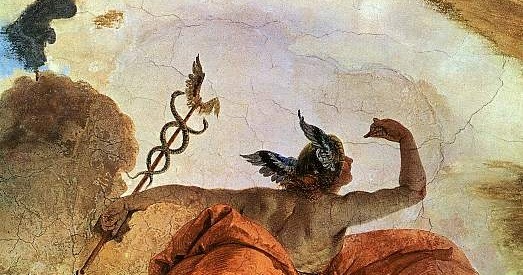
Herbs • Krokos (Crocus) koumara Tree, olives/olive oil, crocus, hydrangea, chrysanthemum, Palm tree, Almond tree, The Silver Birch tree, Crocuses, Saffron, Wheat, Rosemary, Pine Tree, Mint, Cinnamon, Cassia, Golden Benzoin, moly, strawberrys
Animals• sheep, dogs, boars, lions, Tortoise, Ram, The dove killing species of Hawk (hierax in Greek/Latin), Hare- (Greek “Lagos”), constellation Lepus, pig, ram, beef, mutton, pork, Cattle/oxen, hawks, roster, birds of omen, snakes, and guard dogs, fish.
Colors• Red, purple, silver, gold, copper, and black, Orange, Grey, Green, Red, white and brown (associated with traveling)
Crystal• Amethyst, Quartz, Orange topaz, Agate, Marble, smoky quartz, copper, silver, and gold, Eisenkiesel Quartz, Silver, Yellow Topaz, Amber, Citrine, Emerald, and Peridot, red marble, Hematite, jade, malachite, fluorite, pyrite, lapis lazuli, alexandrite
Symbol• Caduceus, Kerykeion (Herald’s staff and magic wand, lulls mortals to sleep and can wake mortals at will), Winged Cap (also called petasos, and a brimmed cap, this cap was called “Cap of Aidoneus, the unseen” because it rendered its wearer invisible), Golden Sickle, Winged Boots- called “pteroeis pedila”, A Sack (the kibisis) Talaria (winged sandals), and Petasos (winged helmet), golden or adamantine blade, shepherd pipes, Purse, Pouch, Hermai.
Mortal or immortal • immortal
Zodiac• Gemini and Virgo, and cancer
Equivalent - Mercury (Roman), Helios (Greek), Hyperion (Greek), Sol/Sol Invictus (Roman), Horus (Egyptian), Ra (Egyptian), Amun (Egyptian), Freyr (Norse), Bragi (Norse), Odin (Norse), Baldr (Norse), Heimdallr (Norse), Lugh (Celtic), Áine (Celtic), Mercurius (Roman god), Thoth (Egyptian god), Anubis (Egyptian god), Woden-Odin (Germanic god)
Attendees • Oreiades (oreads), Pan & the panes, Satyroi, oneiroi, he is often seen with Hestia.
Ephiphets• Agetor -Guide of Souls, Agonius or Enagonius -pertaining (Hermes’ role as presider over solemn festivals such as Agonius) Agoraea and Agoraeus- to Gods who were considered being the protectors of the assemblies of the people in the agora (also has a reference to the agora as the marketplace), Argeiphontes- “radiant one’, Euskopos Argeiphontes, literally “the sharp-eyed Slayer of Argos”, Chthonius or Chthonios, “of the earth or underworld, Hermes Trismegistus- “Thrice Great Hermes”, Kriophoros- the “ram-bearer” is a figure that commemorates the solemn sacrifice of a ram, Leucus- “white”- an epithet of Hermes in Boetia, a Greek city containing Thebes, “Of the Golden Blade”- he carried a sickle made of adamant, Cyllenius, or Kullhnios- from His birth or temple site on mount Cyllene in Arcadia, Diaktoros Argeiphontes – “the courier” Argeiphontes, Kratus Argeiphontes- “strong” Argeiphontes, Hermes Promakhos- “the Champion” Logios- writer, knower of intelligent design, Tetragonos- four square, Aglaos -Splendid, Agoraios - Of the Market Place, Aipytos -Of Aipytos, Akakesios -Of Akakesion, Angelos -Messenger, Agreiphontes -Argus-Slaying, Bouphonos -Slayer of Oxen, Dioktoros -Messenger, Dolios -Crafty One, Enagonios- Of the Games, Enodios - of the Road, Epimelios - Keeper of the flocks, Eriounios - Luck-Bringer, Euangelos - Bringer of Glad Tidings, Euskopos - Watchful, Gumnasiarkhos - Leader of the Gymnasium, Hermeneutes - Interpreter, Kerdoos - the Gainful, Kerukes -Herald, Kharmophron—Heart-Delighting, Khthonios - of the Earth, Khrysorrhapis -Of the Golden Wand, Klepsiphron - Deceiver, Kourotrophos - Protector of Youth, Kranaios- unknown, Krateros - Mighty, Kriophoros - Ram-Bearer, Kullenios - Of Mount Kyllene, Logios -of Speech, Maiados Huios - Son of Maia, Mekhaniotes - Trickster, Nomios - Protector of Flocks, Oiopolos - Shepherd, Pantokrator- Ruler of the World, Pheletes -Thief, Poikilometes - Full of Various Wiles, Poneomenos - Busy One, Promakhos- Champion, Propulaios - Before the Gates, Psukhopompos - Conveyer of Souls, Takhus - Swift, Tetragonos - Square, Trikephalos - Of the Three Ways/Heads, Trismegestos - Thrice-Greatest, Tukhon- Bringer of Luck, Aglaos- Radiant, Bright, Beautiful, Pleasin, enevolent. Angelos Athanatôn - messenger of the gods, Angelos Makarôn- messenger of the Blessed, Akhos Phêlêteôn- leader of robbers and thieves, Chrysorrhapis- of the Golden wand, Dais herairos - comrade of the forest, Diaktoros- guide & messenger, Dolios- Craft of Wiles, Dôtor Eaôn - giver of good things, Dôtor eaôn- Giver of good things, Enagônions- giver of good things, Enagônios-of the game, Epimêlios-Keeper of the flocks, Erikydês- famous, glorious & splendid, Eriounês - Luck bringing & ready helper, Euskopos-Keen-sighted, Hermêneutês- interpreter/translator, Kharidôtês- giver of joy/graces, Kharmonphrôn- Glad-Hearted, Krateros- Strong & mighty, Kriophoros- ram bearer, Kydimos-glorious, mastêrios- of searchers, mêkhaniôtês-trickster, Oiopolos- sheep tending& shepherd, Phêlêtês- their, robber, rustler, poikilomêtês- full of various wiles, Polytropos - Much traveled& much wandering, pompaios- the guide (he’s a psychopomp)
Element • air
Number•Four, eight, Squares (I’m not sure why…)
Past courtships• Merope, Aphrodite, Dryope, Peitho, and even Hecate, but some say, he is married to Peitho
Personality• People say he is chaotic, some say he’s wise and can be calm, he does give serious advice and is a serious guy, but he also has a sense of humor and won’t always steal from you. (he won’t if you ask him not to..I think.)
Patron of• of cunning thieves and liars, Patron of herdsmen, Patron of orators, Patron of inventors, Cattle-herders, Shepherds, Goatherds, Horse & mule breeders, Grazing pastures, Cave shelters, Guard-dogs, Animal predators, Bucolic poetry, music, Animal fables (ex- the tales of Aesop), Laws of hospitality, he is the Protector of guests, Cattle-rustlers, Bandits, Crafty thoughts, Mail carriers and sorters, Retail workers, Canvassers , Editors, journalists, and writers, Newspaper routes, Bank tellers, Carnies , Casino workers, Gas station attendants, Mechanics, presentations, public speaking, playlists (I've heard this years ago)
Diety of• Divine Trickster, boundaries and thresholds, Creator of civilization as Trickster, Messenger of the Gods, transgressor of boundaries and taboos, Inventor of fire, Inventor of sacrifice, of mysteries, Bringer of sleep, dreams, and visions, free will, Psychopompos or Guide of the Dead, Escort of the Gods, thieves, graves, and heralds, Luck, Unexpected Fortune, Giver of Good, of sacrificial priests, successful communication with enemies, translation and language, gymnasia and athletic youth, logos world order, trade and commodities, astronomy, knowledge, speech, Inventor of boxing, running and foot races, of exchange, alchemy, science, internet, Magic, Presider at solemn sacrifices, Divine Movement, Ruler of the Orphic House of Cancer, Ruler of the Planet Mercury, Western astrological signs of Gemini and Virgo, Scribe of the Gods, Protector of all messengers especially in war, Protector of wise women and elderly women, Fertility and Procreation, God of Masturbation, Soul Transformation and Guide through Consciousness changes, Heraldry and animal husbandry, speed, Codes, and Secrets, Caretaker of graves, Protector of travelers, Mechanics, Wine-pourer of the Gods, Inventor of weights and balances, Controller of Birds of Omen, hospitality, diplomacy, physical and moral boundaries, Orators, presentation, public speaking
Home• Mount Olympus
Fact• He invented the alphabet and dice and the lyre, he also has a stone called the “hermai” on the side of the road or a stone with a penis (he was a fertility god) to show a border or a crossing, sometimes to explain direction and distance, or in important landmarks is up ahead, the herms were worshiped, with offerings and anointed with olive oil and adorned with flowers and wreaths, telling us about the sacredness and importance of the hermai. (The ones near tombs are also connected to funeral rites)
Roots• Greek mythology, Mount Cyllene
Blessings • protection on the road, money randomly found, easy speaking, good parking, and less traffic. Herds multiply (fertility); Herds protected (from predators), Success in trade, Goods protected from thieves, having Persuasive speech, Poetic inspiration, Safe traveling, Protection of guests, Homes protected from thieves & criminals, having Wiliness and stealth,
Curses: Herds die off by disease and infertility, Herds lost to predators, Unsuccessful trade
Food recipe • Panspermia, a mixture of beans, peas, seeds, olive oil, milk, and honey, should only be offered to Hermes in his Underworld aspect. This offering is considered food for the dead and should not be tasted by the living (considered bad luck if Aten by living)
Offerings • Keys, Dice, Playing cards, Coins, Rocks/pebbles,Lucky charms (Cereal), Rabbit's foot, Horse shoe, Magic 8 ball, Coffee, Energy drinks, Herms, Road trip snacks (perhaps Hostess donuts), Airplanes/trains/cars imagery, Foreign/new foods, Trail mix, Peanut m&ms, rumane the marble popping soda drink, Turtles, Lyres/string instruments, Sandals/shoes/running shoes, Journals, Camping gear, Survival gear, like multitools, fire starters, first aid kits etc, Pens/pencils, Small (stolen) trinkets, Language dictionaries, Work out gear, Panpipes, Postcards, Letters, Mail, Stamps, Envelopes, Zodiac signs, Sheep/goats, Car parts, Backpacks/drawstring bags/bags, Crocos, Sticks, Saffron, Sticks, Books, Cups, Scales, Dream journals, Graveyard dirt, Cookie fortunes, Bikes/skateboards/skate, Old licenses/IDs, Sport trophies/jerseys/jackets/gear, Wings, Letters/numbers, Video games, Magic kits, Oranges/Lemons, Beer, White wine, Red wine for (His chthonic aspect, Milk, Mutton, Pork, Beef, Chamomile tea, Honey, Olive oil, Strawberries, Foreign foods, Eggs, Virgo or Gemini moon water,Golden objects, Silver objects, Musical instruments, Wands, Money/coins, Foreign money/coins, Dice, Pebbles, Feathers, Turtle shaped objects or art, Strawberry art or toys, Crocus flowers, Written stories or letters, Travel food, Souvenirs from your trips wheat, honey, twigs of olive, honey-comb and honey from local bees, cassia, cinnamon, saffron, include eggs, onions, garlic, pomegranate seeds, and fish or pork, barley grains, mead, beer (Especially German), lead, papyrus, pebbles, herms (or boundary stones), chocolate, whipped cream, coffee drinks, brightly-colored easter eggs, blueberries, granola, almonds, walnuts, pecans, Absinthe, beer, gin, vodka, red-bull, dry white wine, blessed moon water (especially in Virgo, Cancer, or Gemini), metal, jars, gin, pomegranates, onions, fish, garlic, Statues, Turtle Imagery, Hawk Imagery, Ram Imagery, Rooster Imagery, Marbles, Postcards, Chocolate, Lemons, Almonds, Mutton, Foreign Food, Brightly Colored Eggs, Onions, Sunflower Seeds, Fig Newton Cookies, Granola, Candies, Strawberry Milk, spring water, cookies or cakes, Wine, Golden cakes, Golden raisins, Apples, Music or poetry, Dancing, Drawings, pineapple, anything with computers, (especially boxing games, online games, and hackers), orange peels, gas station coffee!!, apples, bananas, grapes,Anything containing mercury, Crocuses, Panpipes, Saffron, Strawberries, Chocolate, Wheat, Honey, Lemons, Almonds, Cassia, Cinnamon, Pork or mutton, Spring water, Comforting a dying loved one, letters
Devotional• Board games, Dominos, pick up sticks, playing jacks, bouncy balls, peanut m&ms, write letters, go on walks, go run, do marathons in his honor, road trips, learn about alchemy, astrology, astral travel, prophet dreams, anything astrology related, learn basic car mechanics, give whatever to panhandlers, go talk to panhandlers (keep them company) , pranks, public speaking, tip well, stargazing, geocaching, learn a new language, Learn ASL, work out, Deive safely and predictably, use your blinkers fucking properly , bike/skate, clean your car, make a travel alter (for Hermes), get a passport, Travel , practice keyboarding, have a penpal, Train your voice, magic tricks, check your mail/email , low risk gambling (ex• lotto tickets) , make sigils, race, Play tag, be nice to wait staff, play sports, make maps of trails near you, make maps in general, play string instruments , Make herms, Carpool, Uphold confidentiality, Coin tricks, Be a reliable worker, Thrifting/yard saying, Dumpster diving, Making trades and barter, Help look for missing people/pets, Travel to new places, Learn a new sport, Practice speaking in public or online, Practice writing, Learn astrology, Learn astronomy, Learn about agriculture and animal husbandry, Learn magic tricks, Collect coins, Have a feast in His name, Dice games (ex- DnD), Card games, Donate to homeless shelters in His name, Give money to the hhomeless, Keep a dream journal, Write Him stories and poems or jokes, Honor the dead, Invoke Him on your travels or when looking for a job, always thank Him when you arrive safely or have some luck in your life, studying, learning, playing harmless pranks, attending magic shows, going on adventures, trying out new things, donating to fundraisers, working out, Taking a scenic route on your way home,Picking up loose change, Going to thrift stores, Being patient with delivery drivers, Going for walks, Making a mood board, Making a playlist, Making a dedicated journal, Giving to those in need, Going to/Watching sporting events, Practicing safe driving, Donations to hospitals and health institutions Donations to local artists, learn on how to save on gas, learn how to surf, draw sigils on shoes, leave coins when you leave places (extra points for pennys), give people in need a bus fare, clean off snow on other peoples car, clean your car, stopping for others (nicely, don’t run them over!), let him pick music, get a passport in his honor, decorate your passport, learn how animals communicate, call a love one, establish and force, dedicate a electronic to him, collect stamps and post cards, keep ur secrets, communicate with people when your upset,Keep a journal, Learn a new language/Revisit, Learn ASL, Learn about the evolution of language and how it is always changing, Be mindful of the language you use in daily life, Change your self-talk to positive, Voice training (Particularly for trans worshippers), Thinking before you speak, Learn about older forms of communication (ex- Morse Code), Learn braille,Go to the library and practice reading books in a foreign language ,Practice writing (great to do, Learn about the elements of writing, like allegory and metaphors, Play pranks (remember that good pranks cause confusion, not harm), Buy scratch offs/play the lottery, Understand how gambling addictions affect people, Dice and card games, Learn about good luck charms/Make your own, Learn about superstitions, Games like billiards or darts, Arcade/video games/carnival games, Make small/friendly bets, Poker nights in his honor, Do aGame of horseshoe, Learn parlor games, Smoke a bowl with Him, Learn a good joke, Write/perform stand up comedy, Checking your mail, Checking email/voicemail, Buying stamps, Flipping a coin, Dice divination, Charm casting, present a presentation in his honor, public speaking in his honor
Siblings• Aeacus, Angelos, Aphrodite, Apollo, Ares, Artemis, Athena, Dionysus, Eileithyia, Enyo, Eris, Ersa, Hebe, Helen of Troy, Hephaestus, Heracles, Minos, Pandia, Persephone, Perseus, Rhadamanthus, the Graces, the Horae, the Litae, the Muses, and the Moirai.
Appearance in astral or gen• Winged cap and boots, Traveller’s cloak, Youthful usually beardless figure or with a beard, with a Caduceus, sometimes seen with a mustache
Parentage• Zeus and the nymph Maia or Uranus and Hemera
Sacred days, festivals- Wednesday, the 4th day of the month, Hermaea, Agonius, in Cydonia social order was inverted for the festival and masters waited on their slaves, and slaves got to taste freedom.
Season• March, April, May, June (based on zodiacs)
Status• Messenger of the gods, and an underworld worker, he is called the darling of the gods
Music • anything from flutes or the lyre.
Sacred places• Mt Kyllene in Arkadia (his birthplace), Arcadia, mount Cyllene, Tricrena mountains, his Temples, his Cavern-shrines, Altars in market-places, gymnasiums, athletic arenas, house entrances.
Planet• mercury
Tarot• eight wands, magician, judgment, and maybe seven swords
Scents/Inscene • Frankensince, Myrrh incense, Lavender incense, strawberry, camphor, and malabathrumcock, storax, mastic, mace, moly, nettles, asafoetida, ginger, and marjolane, dragon’s blood incense, list cloves, tobacco, nag champa, poppy, and vanilla, ink on parchment, Musk, White Sandalwood, Nettles
His kids -Hermaphroditus, Tyche, Abderus, Autolycus, Eudorus, Angelia, and Myrtilus, Arabos, Abderos, Aithalides, Bounos, Daphinis, Ekhion, Eleusis (according to others, she was a minor goddess of Eleusinian Mysteries), Euandros, Kaikos, kephalos, keryx, kydon, libys, Mytilos, Norax, Orion, Paris, Paris, phaunos, polybos,saon
What I associate with him• rock music, bricks (he had two pet bricks that I had given him), dinosaurs, and wine (I promised to share my first cup of wine with him once I turn 21)
Prayers•
Safe travels
Swift-footed Hermes, friend of the traveler, friend of those who find themselves far from their homes, by will or by chance, I pray to you. Hermes, who moves between the realms with authority and ease, who leads men and women on their last, longest journey, who stands at the crossroad, who watches the byways, in you I place my trust, for by your might I know that when I stumble I will rise again, that when I choose my way I will choose aright. Hermes, as I make my way through the world, whether I wander or whether I walk my path with care, be with me.
In general
Hermes of the ready wit and the lightning smile, wing-footed one who carries the words of the gods, compassionate one who guides the newly-dead to the hall of Hades and fair Persephone, quick-thinking one who takes interest in the world and works of mankind, whose hand we see in a run of luck and a clever scheme, I call to you. Hermes, bearer of the herald’s staff, your gifts are great. You guard our homes with constancy and care, you grant to us a portion of your own craft and wile, you join with us when we revel and are merry, you stand with us when we are far from home, alone. You are ever with us, O Hermes; O god who holds in hand the good of men, I honor you.
hestia & hermes for good money
I call to Hermes, god of the marketplace,
god of the the deal, from whose hands fall shining coins. I call to Hestia, goddess of the home, goddess of good management, who knows the ways of thrift. Grant me a keen eye to spot a bargain, I pray; grant that I know false economy from true. Grant me the craft to repair what is broken, grant me the sufficiency to save for what may come. Grant me the wisdom to live with care, O gods, the discipline and skill to live within my means; grant me the wit to know my needs and my desires, grant me the judgment to know the difference.
sources - https://twelfthremedy.tumblr.com/post/621849449656942592/hermes-offerings/amp
Wikipedia. “Agetor.” Wikipedia, the Free Encyclopedia. Wikipedia, 10 Nov. 2010. Web. 12 May 2011. http://en.wikipedia.org/wiki/Agetor.
Burkert, Walter. “The Gods.” Greek Religion. Basil Blackwell and Harvard UP, 1985. 156-59. Print.
The original book was published in Germany as Griechische Religion der archaischen und klassischen Epoche. by Verlag W. Kohlhammer, Stuttgart, copyright year 1977
1b) Atsma, Aaron J. “ESTATE, ATTRIBUTES & ATTENDANTS OF HERMES : Greek Mythology.” THEOI GREEK MYTHOLOGY, Exploring Mythology & the Greek Gods in Classical Literature & Art. 2000. Web. 13 Apr. 2011. http://www.theoi.com/Olympios/HermesTreasures.html, Wikipedia. “Agonius.” Wikipedia, the Free Encyclopedia. Wikipedia, 10 Nov. 2010. Web. 12 May 2011. http://en.wikipedia.org/wiki/Agonius, Wikipedia. “Agoraea.” Wikipedia, the Free Encyclopedia. Wikipedia, 26 June 2010. Web. 12 May 2011. http://en.wikipedia.org/wiki/Agoraeus, Wikipedia. “Chthonius.” Wikipedia, the Free Encyclopedia. Wikipedia, the Free Encyclopedia, 20 June 2011. Web. 26 June 2011. http://en.wikipedia.org/wiki/Chthonius,Wikipedia. “Hermes Trismegistus.” Wikipedia, the Free Encyclopedia. Wikipedia, the Free Encyclopedia, 9 June 2011. Web. 26 June 2011. http://en.wikipedia.org/wiki/Hermes_Trismegistus., “Kriophoros.” Wikipedia, the Free Encyclopedia. Wikipedia, the Free Encyclopedia, 11 June 2011. Web. 26 June 2011. http://en.wikipedia.org/wiki/Kriophoros, Wikipedia. “Leucus.” Wikipedia, the Free Encyclopedia. Wikipedia, the Free Encyclopedia, 13 Feb. 2011. Web. 26 June 2011. http://en.wikipedia.org/wiki/Leucus, Atsma, Aaron J. “ESTATE, ATTRIBUTES & ATTENDANTS OF HERMES : Greek Mythology.” THEOI GREEK MYTHOLOGY, Exploring Mythology & the Greek Gods in Classical Literature & Art. 2000. Web. 13 Apr. 2011. http://www.theoi.com/Olympios/HermesTreasures.html, “CYLLENIUS, Greek Mythology Index.” MYTH INDEX, Greek Mythology. Myth Index, 2007. Web. 13 Apr. 2011. http://www.mythindex.com/greek-mythology/C/Cyllenius.html, Sannion. “Wildivine.org – Offeringsto Hermes.” Wildivine.org – Dionysos, Hermes, Nymphs and Pacific Northwest Polytheism. Wildvine.org. Web. 26 June 2011. http://www.wildivine.org/hermes_offerings.htm.1, Sannion. “Wildivine.org – Offerings to Hermes.” Wildivine.org – Dionysos, Hermes, Nymphs and Pacific Northwest Polytheism. Wildvine.org. Web. 12 May, http://www.wildivine.org/hermes_offerings.htm, Sannion. “Wildivine.org – Hermes’epithets.” Wildivine.org – Dionysos, Hermes, Nymphs and Pacific Northwest Polytheism. Wildvine.org. Web. 12 May 2011. http://www.wildivine.org/hermes_epithets.htm.
https://greekpagan.com/category/prayers-2/hermes/
https://journal.uny.ac.id/index.php/diksi/article/download/49223/18693#:~:text=The%20red%20or%20green%20color,one%20of%20the%20Olympic%20gods.
travelingthief.tumblr.comhttps://www.tumblr.com/themodernwitchsguide
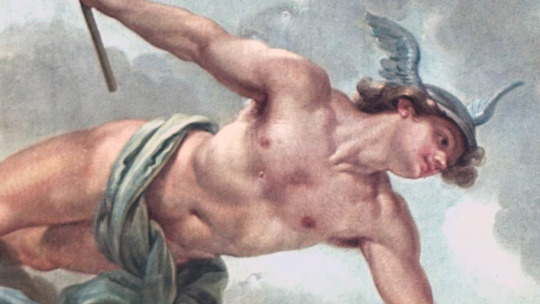
Hermes is the darling of the gods, and very important in everyday life, whether we know it or not, handsome in charm and looks, he is also knowledgeable about many things.
#the gods#hellenic devotion#hellenic polytheism#doing the research for you#hellenic worship#greek gods#greek mythology#hermes#greek tumblr#greek posts#ancient greek#/hermes#percy jackon and the olympians#percy jackson#deity work#polytheist#deity worship#paganism#paganblr#hellenic pagan#hellenic paganism#hellenic polythiest#Don’t ingore me#Care#H#E#R#M#ES#hermes deity
92 notes
·
View notes
Text
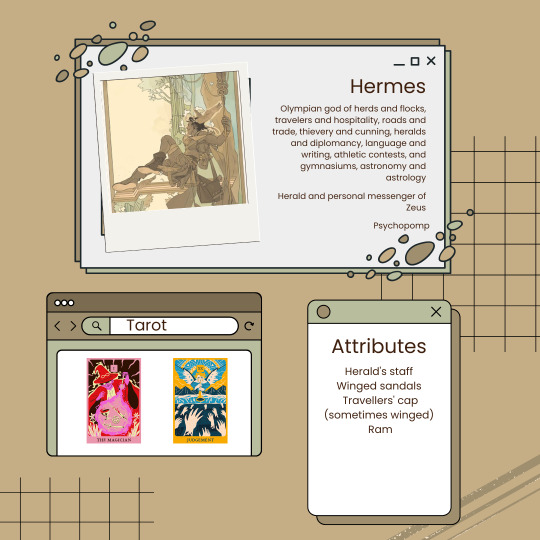
𝙷𝚎𝚕𝚕𝚘 𝚎𝚟𝚎𝚛𝚢𝚘𝚗𝚎!
I wanted to try and start a little series to provide information. It’ll include the greek gods as well as the saints. For the greek gods I want to try and do as many gods as I can before I get burnt out with this.
First I wanted to post about Lord Hermes. He’s been a part of my practice the longest and I feel the most connected to him. I really do hope that this post can be of use to anyone who needs. I certainly do hope that this post and this series can help me grow closer to my practice. So we will see!
𝙲𝚘𝚗𝚝𝚎𝚗𝚝𝚜
Who is Hermes?
Epithets
Family Tree
Symbols & Associations
Offerings & Devotions
Festivals
Sources
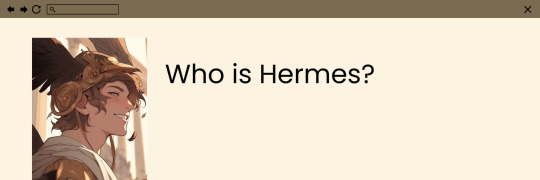
Hermes is the Olympian god of herds and flocks, travelers and hospitality, roads and trade, thievery and cunning, heralds and diplomacy, language and writing, athletic contests and gymnasiums, astronomy, and astrology. He is the messenger of Zeus as well as a guide of the souls, aka a psychopomp.
Greeks depicted Hermes as either a handsome and athletic, beardless youth or as an older, bearded man, with winged boots and a herald's wand. However, Hermes can appear to you in any way that fits. For me personally, he doesn’t completely fit the typical description, although I guess it does fit the handsome, athletic, beardless youth depiction.
Pop Culture
You may have seen Hermes around in your daily life. The caduceus is often used as a symbol in the medical world. Although not because Hermes is tied to medicine in any way. The use of the caduceus is simply due to many mistaking it for the rod of Asclepius. What’s the difference? Hermes’s staff depicts two snakes while Asclepius’s rod only depicts one.
Hermes himself appears in various pieces of media. Stories like Disney’s Hercules or Percy Jackson. He also appears in the Supergiant Games’s Hades as a god that can help you in your journey, or as a boss in God of War III.
You may have also heard of the luxury brand Hermès, which doesn’t seem to be related to the god at all but it pops up when you search him so I’m adding it anyway. I don’t actually know if this is a good brand or not but they seem to keep sustainability in mind so there’s that at least.
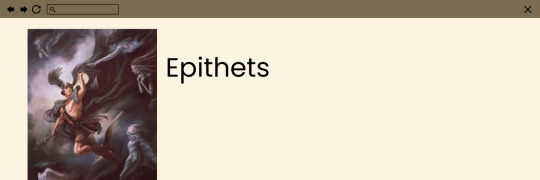
There are many different epithets for Hermes. While there isn’t as many as other gods, there’s still a decent amount of epithets for him. What are epithets? Well, they are essentially surnames for the gods to describe their different aspects. If you wish to call upon a specific aspect of a god you would use their epithet when talking with them.
Now for the different epithets of Hermes. I will be including the transliteration version of the names as the Greek names use special characters that I am unsure if they’ll even show up. So we’re getting close enough.
𝙲𝚞𝚕𝚝 𝙴𝚙𝚒𝚝𝚑𝚎𝚝𝚜
A
Aipytos
Of Aepytus (hero Arcadia)
Agoraios
Of the Market-Place
Akakêsios
Of Acacesium (Arcadia)
D
Dolios
Of Crafts, Of Wiles
E
Enagônios
Of the Games
Epimêlios
Keeper of the Flocks
H
Hermêneutês
Interpreter, Translator
K
Kriophoros
Ram-Bearer
Kyllênios
Of Mt Cyllene (Arcadia)
P
Promakhos
Champion
Pronaos
Of the Fore-Temple
Propylaios
Of the Gateway
T
Trikephalos
Three-Headed (Of Road-Intersections)
𝙿𝚘𝚎𝚝𝚒𝚌 𝙴𝚙𝚒𝚝𝚑𝚎𝚝𝚜
A
Akakêta
Guileless, Gracious
Aglaos
Splendid, Bright, Glorious
Angelos Athanatôn
Messenger of the Gods
Angelos Makarôn
Messenger of the Blessed
Athanatos Diaktoros
Immortal Guide
Argeiphontês
Slayer of Argos
Arkhos Phêlêteôn
Leader of Robbers, Thieves
B
Bouphonos
Slayer of Oxen
D
Dais Hetairos
Comrade of the Feast
Diaktoros
Guide, Messenger
Dôtor Eaôn
Giver of Good Things
E
Erikydês
Famous, Glorious, Splendid
Eriounês
Luck-Bringing, Ready-Helper
Euskopos
Keen-Sighted, Watchful
K
Kharidôtês
Giver of Joy
Kharmophrôn
Glad-Hearted, Heart-Delighting
Khrysorrhapis
Of the Golden Wand
Klepsiphrôn
Deceiver, Dissembler
Krateros
Strong, Mighty
Kratus
Strong, Mighty
Kydimos
Glorious
Kyllenios
Of Mt Cyllene
M
Maiados Huios
Son of Maia
Mastêrios
Of Searchers
Mêkhaniôtês
Trickster, Contriver
O
Oiopolos
Sheep-Tending, Shepherd
P
Phêlêtês
Thief, Robber, Rustler
Poikilomêtês
Full of Various Wiles
Polytropos
Wily, Many-Turning
Pompaios
The Guide
Poneomenos
Busy One
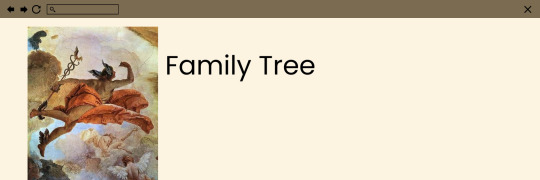
𝙿𝚊𝚛𝚎𝚗𝚝𝚜
FATHER ; Zeus - King of the Gods
MOTHER ; Maia - daughter of the Titanes Atlas and Pleione
𝙳𝚒𝚟𝚒𝚗𝚎 𝚂𝚒𝚋𝚕𝚒𝚗𝚐𝚜
Lady Artemis (half sister by Zeus)
Goddess of the Moon, the Hunt, Wild Animals & Wilderness, & Virginity
Lord Apollon (half brother by Zeus)
God of the Sun, Prophecy, Truth, Music & Poetry, Archery, Healing, & Light
Lord Ares (half brother by Zeus)
God of War
Lady Athena (half sister by Zeus)
Goddess of War, Wisdom, & Arts & Crafts
Lady Aphrodite (half sister by Zeus)
Goddess of Love, Beauty, Desire, & Fertility
Lord Hephaestus (half brother by Zeus)
God of Fire, the Forge, Metalworking & Sculpting, Craftsmen, & Technology
Lord Dionysus (half brother by Zeus)
God of Wine, Fertility, & Theatre
𝙳𝚒𝚟𝚒𝚗𝚎 𝙲𝚑𝚒𝚕𝚍𝚛𝚎𝚗
ANGELIA - goddess of messages Daughter of Hermes
ELEUSIS - goddess of the Eleusinian Mysteries. daughter of Hermes and Daeira
HERMAPHRODITOS (Hermaphroditus) - The hermaphroditic daimon son of Hermes and Aphrodite.
OREIADES (Oreads) Depends on the myth ; Many of the Oreiades were said to be the daughters of Hermes and other Oreaides Nymphai.
PALAISTRA (Palaestra) - goddess of wrestling Daughter of Hermes
PAN - the goat-footed god of shepherds son of Hermes and the Nymphe Penelopeia.
PANES Agreus ; son of Hermes and Nymphe Sose ; Nomios ; son of Hermes and Nymphe Penelopeia
PRIAPOS (Priapus) - god of garden fertility depends on the myth ; son of Hermes (most sources say this god was the son of Dionysus and Aphrodite).
SATYROI (Satyrs) Pherespondos, Lykos and Pronomos ; sons of Hermes and the Nymphe Iphthime
𝙼𝚘𝚛𝚝𝚊𝚕 𝙲𝚑𝚒𝚕𝚍𝚛𝚎𝚗
ABDEROS (Abderus) - prince of Opous who was loved by Herakles. son of Hermes
AITHALIDES (Aethalides) - A lord of Phthiotis who joined the expedition of the Argonauts. son of Hermes and Eupolemeia.
ARABOS (Arabus) - The first king of Arabia son of Hermes and Thronia.
AUTOLYKOS (Autolycus) - A thievish prince of Phokis son of Hermes and Khione.
BOUNOS (Bunus) - A king of Korinthos son of Hermes and Alkidameia.
DAPHNIS - A bard of Sikelia who invented pastoral or bucolic poetry son of Hermes and a Sikelian Nymphe
EKHION (Echion) - A lord of Alope in Malis who joined the expedition of the Argonauts son of Hermes and Antianeira.
ELEUSIS - A king and eponym of the town of Eleusis son of Hermes and Daeira
EUANDROS (Evander) - founded the city of Pallantium son of Hermes and the Naiad Karmentis.
EUDOROS (Eudorus) - A lord of Phthiotis son of Hermes and Polymele.
EURESTOS (Eurestus) son of Hermes and Aptale.
EURYTOS (Eurytus) - A lord of Alope in Malis who joined the expedition of the Argonauts. son of Hermes and Antianeira.
KAIKOS (Caecus) - A lord of Teuthrania son of Hermes and the Naias Nymphe Okyrrhoe.
KEPHALOS (Cephalus) - A lord and hunter of Attika son of Hermes and Herse (aka Kreusa)
KERYX (Ceryx) - A lord of Attika, first Herald of the Eleusinian Mysteries. son of Hermes and Agraulos (or Thrakian King Eumolpos)
KYDON (Cydon) - A lord of Kydonia in Krete son of Hermes and the Kretan princess Akalle
LIBYS A king of Libya son of Hermes and the princess Libya
MYRTILOS (Myrtilus) - The herald and charioteer of King Oinomaos of Pisa son of Hermes and Theoboula
NORAX - A prince of Iberia son of Hermes and Erytheia
ORION - A giant who was born in answer to the prayers of the childless Boiotian King Hyrieus son to Hermes, Poseidon and Zeus
PHARIS - A lord who founded the city of Pharai son of Hermes and the Danaid Phylodameia
PHAUNOS (Phaunus) - A barbaric Italian king who sacrificed strangers to his father ; slain by Herakles. Son of Hermes
POLYBOS (Polybus) - A king of Sikyonia son of Hermes and Queen Khthonophyle
SAON - The first king of the island of Samothrake son of Hermes and the Nymphe Rhene (OR Zeus and a Nymphe).
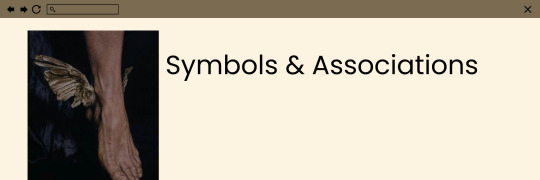
𝚂𝚢𝚖𝚋𝚘𝚕𝚜
Caduceus
Hermai (Stones that marked roads and boundaries, often with the carved head of Hermes)
Lyre
Petasos (Travellers’ Cap)
𝙰𝚗𝚒𝚖𝚊𝚕𝚜
Tortoise
Ram
Hawk
Rooster
Snake
Hare
𝙵𝚕𝚘𝚠𝚎𝚛𝚜, 𝚑𝚎𝚛𝚋𝚜, 𝚙𝚕𝚊𝚗𝚝𝚜, 𝚊𝚗𝚍 𝚏𝚛𝚞𝚒𝚝
Crocus
Greek Strawberry-Tree
Palm Tree
Almond Tree
𝙲𝚛𝚢𝚜𝚝𝚊𝚕𝚜/𝚂𝚝𝚘𝚗𝚎𝚜
Amethyst
Hematite
Agate
Amber
Citrine
Peridot
Yellow topaz
Emerald
Red Marble
𝙲𝚘𝚕𝚘𝚛𝚜
Gold
Yellow
Orange
Silver
Grey
Green
Red
𝙴𝚕𝚎𝚖𝚎𝚗𝚝
Air
𝙿𝚕𝚊𝚗𝚎𝚝
Mercury
𝙳𝚊𝚢
Wednesday
𝚃𝚊𝚛𝚘𝚝 𝙲𝚊𝚛𝚍𝚜
Can really be any card that you decide to use as an identifier between you and Lord Hermes. These are just some suggestions.
Judgement
The Magician
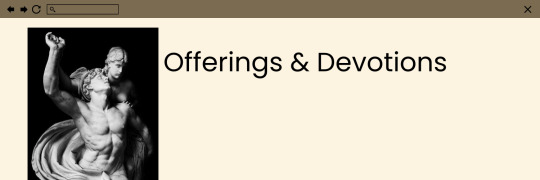
These are just suggestions! You can always find a different offering or devotional act based on your own personal associations and practice. And if you can’t provide any physical offerings, that’s okay. Devotional acts or digital offerings are just as good.
This list consists of UPG and SPG suggestions.
Offerings
Currency
Dice
Feathers
Travel Tickets
Souveniers
Imagry of his associations
Foods & Drinks
Foreign Foods
Red Wine
Olive Oil
Strawberries
Coffee/Energy drinks
Water
Honey
Lemons
Almonds
Cinnamon
Chocolate
Wheat
Devotional Acts
Travelling
Learn a new language
Play a sport
Learn Astrology
Practice public speaking
Do *harmless* pranks (Confuse, don’t abuse)
Write to him
Research
Donate to homeless shelters, to local sports teams, or relief charities
Workout
Make a devotional playlist and listen to it
Prayer to Hermes
I call to Hermes, son of thundering Zeus
and gracious Maia, fair of face and kind of heart;
father of Tyche, granter of serendipity.
In rugged Arcadia, land of your birth,
were you well known and praised by one and all; in all
the ancient world did you receive honors. Throughout
the land stood herms and mounded stones, at crossroads
and at boundaries, in all the far-flung provinces,
marking the path and holding your gift of fortune,
Far-journeying Hermes, guide of the traveler,
fleet-footed god of merchants, god of gamblers and thieves
and all who live by wit and wile and clever words,
master of discretion and finesse. Hermes,
protector of the home, provider of .feast and frolic,
courier of dreams, kind Hermes, I call to you.

Hermaea
The festival dedicated to Hermes celebrated in several parts of Greece. The boys were on this occasion dressed in their best, offered sacrifices to the god, and amused themselves with various games and sports.
𝚂𝚘𝚞𝚛𝚌𝚎𝚜
Theoi Summary
Theoi
Epithets
Timeless Myths
Study.com
Mythopedia
A Guide to Worship
Greek Gods Cheat Sheet
Prayers to Hermes
Hermaea
4 notes
·
View notes
Text
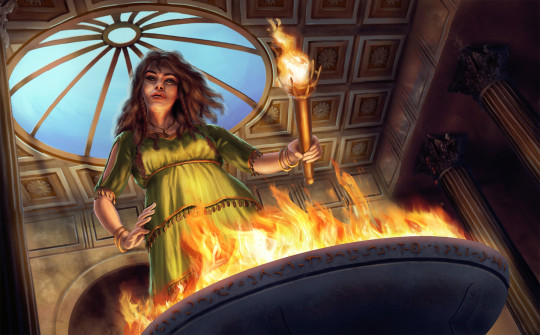
Hestia - Goddess of the Hearth by Markus Stadlober 2019
"Hestia and Hermes: the Greek imagination of motion and place You live among men's and women's beautiful dwelling places On the foot of the big statue of Zeus in Olympia, Phydias represented the twelve Olympian Gods. Between Helios, the sun and Selene, the moon, he arranged them in six couples: Zeus-Hera, Poseidon Amphitrita, Hephaistos-Charis, Apollo-Artemis, Aphrodite-Eros and Hermes-Hestia [Pausanias, Descriptions of Greece 5.11.8]. Hestia and Hermes are not husband and woman, nor brother and sister, nor mother and son either. They are neighbors, or better: friends. Where Hermes loiters is Hestia never far. Where Hestia stays, Hermes can appear at any moment. In its polarity, the couple Hestia-Hermes expresses the tension which is proper to the archaic representation of space. Space needs a center, a fix point from which directions and orientations can be defined. But space is also the locus of motion, and that implies the possibility of transitions, of passage from any point to any other. Hestia and Hermes belong to very archaic, pre-Hellenistic representations. Hestia is the hearth. In modern Greek, istia still means the hearth or the household. The name Hermes comes from herma(x), hermaion or hermaios lophos, heap of stone. Before he became an Olympian God, Hermes was the personification of lithoboly, the gesture of throwing stones on tombs. He was the heap of stone or the wooden pole on a grave, but also the phallos. Hermes unites death and fertility in one figure. Hestia and Hermes, personifications of the hearth and of the protecting grave are the Gods of the domestic domain. They are also the symbols of the gestures of women and men and of their interplay. Through that interplay, the house becomes a unique place in the world, a topos in a cosmos. Hestia and Hermes allow us a glance into Greek domesticity. In their interplay, we can understand something of the Greek household and its works and of hospitality. "You live both on the superficies of the soil, in the beautiful dwellings places of men and women, and you are filled with mutual philía" said a homeric hymn. Hestia and Hermes are the epichthonian Gods, the Gods of the dwelled soil. They are everywhere where people make fire, trace limits, build walls and a roof over their heads. Together, they are the Gods of orientation and of the tracing of limits. (Jean-Pierre Vernant, "Hestia - Hermès. Sur l'expression religieuse de l'espace et du mouvement chez les Grecs:, in Jean-Pierre Vernant, Mythe et pensée chez las Grecs. Étude de psychologie historique, 2 vol., Paris, 1974, pp. 155 - 201. 2)
Hestia sits in the middle. She stands still, but she is ubiquitous. Hermes, the quick one, can never be caught, like mercury. He never appears where he is expected and reigns over the space of travellers. Hestia embodies the gestures of settling down, of enclosing and of keeping. Hermes manifests the gestures of opening, trespassing, and speaks of mobility and of the encounter with the other. He is the God of transitions . He keeps guard on doors and limits, the entrance of cities as well as crossways and has for this reason many heads: Hermes trikephalos, tretrakephalos. Since graves are doors to the underworld, he is in necropoles and cemeteries. He accompanies the souls of the dead to the Hades: Hermes psychagogos, psychopompos. He is the protector of thieves, but he also protects houses from thieves. He is the messenger between Gods and humans: Hermes angelos. All those different aspects of Hermes's activity become only coherent in relation to Hestia's. Hermes makes mobile, Hestia centers. Hestia's place is the hearth, whose deeply rooted stone is a symbol of constancy. Hermes's place is near the door, that he protects from his companions the thieves: Hermes pyloros. Hermes's characteristics and activities are the asymmetrical complements of what Hestia is and does. (Arnold van Gennep, Les rites de passage: étude systématique des rites, Paris: 1909.)
Asymmetrical complementarity At every step of our analysis, we have acknowledged a polarity, or better an asymmetrical complementarity between constancy and change, center and periphery, the closed and the open, the interior and the exterior. That complementarity shapes all spaces, as well as the condition of their inoccupants. We are introduced into a world where by telling me which space you occupy and how, you tell me who you are. Neither term of the polarity can be understood alone, but always only in complement to the other. The tension between these two poles mirrors itself even in the definition of everyone of the terms: there is a Hestia in Hermes, a Hermes in Hestia. As we have already seen with the paradox of hospitality. Hermes's activities can always be interpreted in a hestian light, and vice-versa. In this hestian light, activities like bartering, buying and selling, which are Hermes's prerogatives can be seen as extensions of the logic of gift, over which Hestia reigns. Inversely, Hestia reigns over keeping activities in the house. In Hermes's light, these activities look like an accumulation, an interpretation who became widespread in classical times, where the granaries of the polis, managed by men, were called the Hestia Koinê. So Xenophon compared Hestia with the bee queen, "that stays in the middle of the beehive and sees that honey be well kept". He gives the cells of the beehive the same name that was given to the chambers in which precious goods were kept: thalamoi. As Hestia Koinê, Hestia becomes the symbol of the accumulation power of the city and of the union of their inhabitants around their granaries.
Hestia and Hermes in Greek philosophy Plato gives us a striking example of the absorption of Hermes by Hestia. Hermes is, you remember, the stone heap, the wooden pole on graves. As such, he personifies the central pole of a house, the stem of the big tree in the house patio or the phallos. Hestia is the stone of the hearth, that roots the bouse into the soil, but also the column of smoke that relates the infraworld with the sky. Plato lets the two figures merge into one. Hestia is for him the axis of the world. He plays with etymologicaly not quite founded - homonimities, allowing himself to compare Hestia with the pillar (histiê), the mast of a ship (istós), the woman at the loom, whom he called histia. In Republic, he compares Hestia with the spinning Goddess Anankê, who sits at the center of the universe and whose spindle's motion regulates the revolution of the heavenly spheres. Anankê also means necessity, or the erected phallus. Plato even invents two poetic etymologies for Hestia: ousia, the essence, and hosia, motion."
-Jean Robert, Hestia and Hermes: the Greek imagination of motion and place
9 notes
·
View notes
Text
Die Community Days von Pokémon GO sind schon lange ein fester Bestandteil der Community-Engagement-Bemühungen des Spiels, bei denen Spieler die Chance haben, spezielle Pokémon mit exklusiven Attacken zu fangen. Doch wächst unter den Spielern die Sorge über die augenscheinliche Bevorzugung von Pokémon, die im Spieler-gegen-Spieler (PvP)-Kontext Vorteile bieten, während die Spieler-gegen-Umgebung (PvE)-Aspekte – darunter die Raid-Kämpfe des Spiels und andere Herausforderungen, die keinen direkten Wettbewerb zwischen Spielern beinhalten – oft vernachlässigt werden.
Übersicht über die PvP-Zentrierung der Community Days
Das typische Format eines Community Day-Events stellt ein einzelnes Pokémon in den Mittelpunkt und bietet für mehrere Stunden erhöhte Spawn-Raten dieses Pokémon. Die meisten der hervorgehobenen Pokémon erhalten eine neue oder exklusive Attacke, die ihre Leistung in den PvP-Ligen, insbesondere der Go Battle League (GBL), verbessert. Diese Tendenz zeigt sich in vergangenen Community Days, wie denen, die Brutalanda, Rihornior, Knakrack, Despotar und Metagross in den Fokus stellten – alle erhielten Attacken, die ihre Nützlichkeit im Wettkampf erheblich steigerten.
Metagross: Erhielt die Attacke „Sternenhieb“, wodurch es sowohl in der Meisterliga (PvP) als auch als Stahltyp-Angreifer in Raids (PvE) zur Macht wurde.
Brutalanda: Bekam „Drachenwut“, was sehr effektiv im PvP ist, es aber auch zu einem der besten Drachentyp-Angreifer in PvE-Szenarien machte.
Trotz dieser Beispiele liegt die Kritik in der Balance und den Auswahlkriterien, die stark auf PvP-Anwendbarkeit abzielen und PvE-zentrierte Spieler, die einen erheblichen Teil der Spielerbasis ausmachen, ausklammern.
Community-Reaktionen und Kritik
Die Community-Reaktion auf neuere Events wie den Sarzenia Community Day war bestenfalls verhalten. Spieler äußerten auf Plattformen wie Reddit ihre Enttäuschung und wiesen darauf hin, dass die Hinzufügung eines schillernden Sarzenia mit einer auf PvP zentrierten Attacke redundant sei, da es bereits im Spiel existiert. Kommentare hoben den Mangel an „bedeutungsvollem Meta-Einfluss“ solcher Entscheidungen hervor und betonten die Notwendigkeit von Features, die gleichermaßen PvP- und PvE-Spieler ansprechen.
Begrenzter PvE-Nutzen: Die meisten Community Day-Attacken verbessern die Wirksamkeit des Pokémon in Raids und anderem PvE-Content nicht signifikant.
Vernachlässigung diverser Strategien: Spieler empfinden den aktuellen Ansatz als einschränkend für die strategische Vielfalt, insbesondere in PvE-Formaten, wo verschiedene Typen von Attacken und Pokémon oft vorteilhafter sind.
Der ideale Community Day: Ein Gleichgewicht zwischen PvP und PvE
Was die Community fordert, ist ein inklusiverer Ansatz, bei dem das ausgewählte Pokémon und seine exklusive Attacke beiden Zwecken dienen, das Spielerlebnis über PvP- und PvE-Formate hinweg verbessern. Ein leuchtendes Beispiel bleibt der Community Day von Trikephalo, bei dem es „Brutalschwingen“ erhielt. Diese Attacke machte Trikephalo zu einem formidablen Angreifer im PvE, während es gleichzeitig seinen Status in PvP-Kreisen erhöhte.
Vorschläge zur Verbesserung
Inklusive Attackenauswahl: Zukünftige Community Days sollten Attacken in Betracht ziehen, die die Nützlichkeit eines Pokémon im PvE erheblich steigern. Dieser Ansatz würde nicht nur Raid-Spieler zufriedenstellen, sondern auch den Gesamtwert des Community Day-Pokémon aufwerten.
Erweiterung des Metas: Eine größere Bandbreite an Pokémon, die sowohl im PvP als auch im PvE glänzen können, würde das Interesse und die Einbindung der Spieler aufrechterhalten. Diese Strategie beinhaltet die Auswahl von Pokémon, die vielleicht nicht die üblichen Verdächtigen für jedes Format sind, aber mit der richtigen Attacke relevant werden können.
Verbesserte Zugänglichkeit: Angesichts der geografischen und ressourcenbedingten Unterschiede zwischen den Spielern, insbesondere denen in ländlichen Gebieten, sind Attacken, die weniger zugängliche Pokémon wettbewerbsfähiger machen, wünschenswert.
Diese Anpassung könnte den Zugang zu mächtigen und meta-relevanten Pokémon über alle Spielerschichten hinweg demokratisieren.
Fazit
Zusammenfassend lässt sich sagen, dass die Community Days von Pokémon GO zwar erfolgreich die Spielerbasis aktiv und engagiert halten, aber dennoch ein klares Bedürfnis für eine Strategieerneuerung besteht, die den Reiz dieser Events zwischen PvP- und PvE-Enthusiasten gleichermaßen ausgleicht. Durch die Annahme eines ganzheitlicheren Ansatzes bei der Auswahl der Pokémon und ihrer exklusiven Attacken kann Niantic das Spielerlebnis für einen größeren Teil seiner Community erheblich verbessern und sicherstellen, dass diese Events für jeden Spieler, unabhängig von seinem bevorzugten Spielstil, etwas Wertvolles bieten.
Die Umsetzung dieser Änderungen würde nicht nur die aktuelle Unzufriedenheit besänftigen, sondern auch die Begeisterung der Community für bevorstehende Community Days beleben und möglicherweise die Teilnahmequoten und die allgemeine Zufriedenheit mit dem Spiel erhöhen. Um mehr über die sich entwickelnde Landschaft von Pokémon GO zu erfahren, sieh dir detaillierte Einblicke in Community Day-Events und ihren Einfluss auf die Spielerbasis an.
Ebenso könnten für Spieler, die nach Updates in anderen Spielen suchen, die bevorstehenden Änderungen und Belohnungen in Genshin Impact 4.6 oder die strategischen Tiefen in SteamWorld Heist 2 ebenfalls interessante Entwicklungen bieten, die es zu entdecken gilt.
0 notes
Text

Fertig mit der Liga. Die wirkt doch echt kurz, aber ich hab dennoch Dinge, die ich echt mag und obwohl viele Leute das Finale nicht mögen, mag ich den kampf eigentlich.
Nicht alle Stellen, aber mit Trikephalo und die Kämpfe mit Lucario sind recht gut und daran hab ich meinen Spaß. Will ich abe rnicht auseinandernehmen den kampf.
Mag den Teilweise
-

Die Rivalen sind jetzt auch weg und wir sehen die dann nur noch im letzten Ending, was auch schön ist
-

Ich mag auch den vibe am Ende. Die Liga ausklingen lassen und Referenz zur Kanto Liga.
Jetzt geht es mit paar Episoden N weiter, dann Decolora.
0 notes
Text
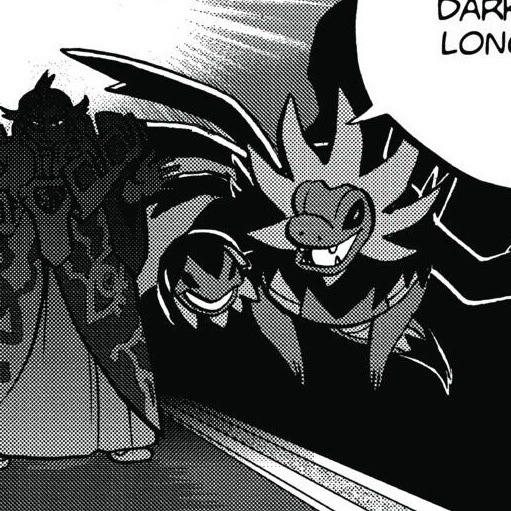

Goliath and Frieden/Goliath und Frieden.
Hydreigon and Deino Father and son/Trikephalo und Kapuno Vater und Sohn
0 notes
Text

More pics ~
A Team has arrived!
Delphox: Pompeii - male (Ghirahim in disguise)
Aggron: Wedge - male (The mum friend)
Mawile: Ironqueen - female (THE QUEEN)
Hydreigon: Andromeda - female (best girl)
Garchomp: Earthquake - male (Servant of the mAJESTIC QUEEN))
Luxray: Cyclone - male (good boi)
More infos about them in later posts~
#furry#oc#traditional art#floof#fluffyboi#pokemon oc#pokemon#Fennexis#delphox#Trikephalo#hydreigon#Knackrack#garchomp#Flunkiefer#mawile#Luxtra#luxray#Stollos#aggron#pokemon team#overdue art at this time#it was finished since a few months#Pompeii the Delphox#Ironqueen the Mawile#Andromeda the Hydreigon#Earthquake the Garchomp
18 notes
·
View notes
Photo

Hydreigon Sygna Suit Rosika
#pkmnart#pokemon masters#pokemon masters ex#sygna suit#pokeani#anipoke#pokemon oc#pokemon trainer#trikephalo#sazandora#pokeani oc#anipoke oc#pokemon trainer oc#trainer oc#dragon pokemon#dragon type#dark type#dark pokemon#saccha art#rosika#the dragon princess
57 notes
·
View notes
Text

#dragonsart#pokemon#pokémon#super pokemon mystery dungeon#spmd#icognito#trikephalo#hundemon#houndoom#hydreigon#mampfaxo
21 notes
·
View notes
Photo

well it just popped up in my head ~ I like the idea of it : )
#hydreigon#trikephalo#cincchino#pokemon#chillabell#pokemon fusion#pkmn#digitalart#digital drawing#fanart#my work#my design#dragon#normal type pokemon#dragon type pokemon#dark type pokemon#fusion#my art
67 notes
·
View notes
Text
30 Days of Hermes
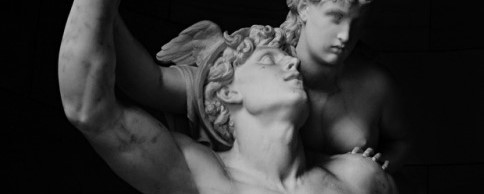
Day 7 - Names and Epithets
I wanted to do a deep dive into his epithets for quite some time so I’m glad I have the opportunity to do that now. I will tryyy to explain a bit more whenever possible. Hope you find it useful even though it’s a bit LONG !
Aglaos - Radiant, Bright, Beautiful, Pleasing - this epithet is shared with Zeus and Hekate, it is used in the homeric hymn to Hermes.
Agoraios - of the Marketplace - referring to his role as god of trade and merchants. Found mainly in Athens, Sparta and Thebes. Statue of Hermes Agoraios would stand near the agora.
Akakêta - Guileless, Gracious - benevolent
Angelos Athanatôn - Messenger of the Gods
Angelos Makarôn - Messenger of the Blessed
Argeiphontês - Slayer of Argos - referring to the myth where Hermes kills the many-eyed giant watching over Io, freeing her
Arkhos Phêlêteôn - Leader of Robbers, Thieves - where the title ‘god of thieves’ comes from
Chrysorrhapis - of the Golden Wand - referring to the herald’s staff, the caduceus
Dais Hetairos - Comrade of the Feast - this one appears in the homeric hymn when he creates an instrument with the tortoise he killed that he will use during the feast he prepared to the gods with one of the cows he stole to Apollo.
Diaktoros - Guide, Messenger - a wildly used epithet for the god who often carries messages or guides gods and mortals through the world. Sometimes seen as ‘‘Athanatos Diaktoros”, the immortal guide.
Dolios - of Crafts, of Wiles - a fitting epithet for the cunning god with a sharp tongue who always finds a way to win with his tricks and sweet words
Dôtor Eaôn - Giver of Good Things - see Kharidôtês
Enagônios - of the Game - referring to his role as god of competition, gymnasium and palestra
Epimêlios - Keeper of the flocks - referring to his role of herdsman
Erikydês - Famous, Glorious, Splendid
Eriounês - Luck-Bringing, Ready-Helper - referring to his role of bringer of good fortune
Euskopos - Keen-Sighted, Watchful - another homeric epithet describing the many qualities of the god
Hermêneutês - Interpretor, Translator - this one is pretty self explanatory, it connects him to the art of translation and is the reason why he is a great patron god for people dealing with foreign languages.
Kharidôtês - Giver of Joy/Grace - this one is oh so lovely ! Referring to the homeric line “Hail Hermes, giver of grace, guide, and giver of good things!”
Kharmophrôn - Glad-Hearted, Heart-Delighting - for He who brings laughter to people and gods
Klepsiphrôn - Deceiver, Dissembler - another epithet connected to his trickster role
Krateros - Strong, Mighty -
Kriophoros - Ram Bearer - it is said that Hermes saved a boetian city from a plague by carrying a ram on his shoulders around the walls of the city. This myth was the origin of a cult practice where young men would carry rams over their shoulders.
Kydimos - Glorious - an homeric epithet praising the god. This one is shared with other gods as well.
Maiados Huios - Son of Maia
Mastêrios - of Searchers -
Mêkhaniôtês - Trickster, Contriver
Oiopolos - Sheep-Tending, Shepherd - again an epithet connecting him to herdsmen
Phêlêtês - Thief, Robber, Rustler
Poikilomêtês - Full of Various Wiles
Polytropos - Wily, Many-Turning - meaning “much-traveled” or “much-wandering, this epithet is applied to Odysseus in the homeric work. Metaphorically it means “turning many ways” or crafty.
Pompaios - the Guide - referring to is role of psychopom, guide of the dead
Poneomenos - Busy One - referring to the fact that he is always busy working and travelling
Promakhos - Champion - Promachos refers to a solider “fighting in the first rank of the palanx”. This epithet is found in Tanagra in Boeotia. Pausanias says that the god led the ephebes to battle carrying a strigil, disguised as a youth.
Trikephalos - Three-Headed (Of Road-Intersections) - epithet shared with Hekate, it refers to his role as god of the crossroads.
#30 days of devotion#hermes god#hermes#hermes deity#epithet#hermes epithet#helpol#hellenic polytheism#hellenic pagan#hellenism#theoi#hermes worship#theoi worship#polytheism#30 days of hermes
351 notes
·
View notes
Text
Epithets: Epipurgidia
Epipurgidia
On the Tower, of the Bastion
It was Alkamenes, in my opinion, who first made three images of Hekate attached to one another, a figure called by the Athenians Epipurgidia (on the Tower); it stands beside the temple of Nike Apteron (Wingless Victory) [on the Akropolis].
- Pausanias, Description of Greece 2.30.2 (trans. Jones, as presented on theoi.com)

Central to this depiction of Hekate is Her triplicity, something we find in many descriptions of Her as well as Her epithets. Hekate Epipurgidia is Triaucheros (Three-necked), Triformis (Three-Formed), and Trikephalos (Three-Headed). There have been many debates regarding the symbolic value of this depiction. Historically, all three aspects of Her form are the same age and appearance, though they may hold different objects in their hands. Zografou (I think rightly) suspects that there were varying and diverse reasons why Hekate might have had this triplicity emphasized. Perhaps it reflects some element of Her connection to the Moon, Her preference for three-way crossroads and Her ability to see all directions, Her dominion over Her share of the Heavens, Earth, and Sea, She might have been syncretized with some other divinity, or perhaps the reasons are lost to time.
Images of Hekate like this were kept enshrined in Athens at the entrances to homes, and given offerings at the end of each Lunar cycle, as part of a purification rite, and a means of blessing the home.
Kraus holds that Hekate’s three-fold nature comes from Her role as a Chthonian being, and suggests that this phenomenon is also found with Cerberus’ three heads. This conception of Hekate Epipurgidia is one that emphasizes her role as a Goddess of death, of the Restless Dead, and Her association with the cemetery. Appearing as three-in-one is a supernatural feat, one that can also reflect Her connection with a variety of animals. Particularly in the Late Antiquity, Her heads can be bestial: the most common being dog, horse, serpent, bull, or goat. However, if the image of Hekate is one of a malefic or terrifying nature, then one wonders why it would be presented in a place of honor at the Akropolis, much less at the home. The prevalence of Hekate Triformis in the home cult seems to stand at odds with the theory.
My theory, which also held by numerous scholars, is that the dangerous and chthonic nature of Hekate is why She was welcomed into the home. As a being associated with nightmares, disease, madness, as well as death and the dead, She was also one of the best to hold the same powers at bay. Much like the Gorgones existed as protections as well as threats, Hekate has numerous protective aspects, and can withhold or extend Her gifts as She Wills it. Indeed, Zografou suspects that Hekate’s role as the Protectress of Doors, Harbors, and Roads may be one of Her earliest.
More interestingly, Zagrafou points out that in other contexts, the association of a deity with a threefold appearance, suggests an emphasis of their range of power. Her example is Zeus Soter who was sometimes described similarly, as Zagrafou puts it (pardon my shite translation skills):
“…three can signify all…”
If Her consideration is accurate, then Hekate’s triplicity may suggest that a conception of Her as a vast and powerful Goddess could be an earlier idea than what I have previously believed. Generally, I have taken the grandness of Her role in the Chaldean Oracles and the PGM to be partly born of the ages in which they were written. In spite of my own practice’s emphasis on Her role as a greater Power, as the World Soul, Source, and Nature, as described in late antiquity, I try not to assume that my conception would be one recognizes by a Classical Athenian. But if Zografou’s consideration is accurate, perhaps Hekate’s role has been larger than I have previously considered.
Artemis, too, could be called by this epithet, another overlap which has contributed to the conflation of the two Goddesses over the eons. Though Artemis is not shown having the same propensity toward triplicity (nor, for that matter, does Selene, in spite of the theory that Hekate’s triplicity is tied to the moon somehow.)
Ultimately, Hekate’s three-fold appearance has come to dominate Her cultus today, even though one could also encounter Her as singular or even in groups of four. The question as to what that means for you in particular is something you have to consider based on your own experiences. I cannot answer the questions as to which theory might explain. Epipurgidia, which best translates as on the Bastion, suggests, like Apotropaia and Soteira, seems, I think, to best apply as a protective aspect. I could be mistaken, or misinterpreting that, however.
Khaire Hekate Epipurgidia!
You, Goddess, who stood guard in Athens,
Stand firm now,
Before _________
Let Your grace protect them
From the danger which would single them out.
Let Your light reveal
That which would trouble them.
Let Your immortal wisdom
Guide those who can best help them
In this time of tribulation.
Do this, and my gifts will be manifold.
Hekate Epipurgidia!
You, Goddess, who stood guard in Athens,
Stand firm now.
Sources:
Theoi.com
Cole, Susan Guettal. Landscapes, Gender, and Ritual Space: The Ancient Greek Experience, Univ. Cali., 2004.
Parker, Robert. “The Problem of the Greek Cult Epithet,” in Opuscula Atheniensia 28, 2003. pp. 173-183.
Pausanias. Description of Greece, trans. W.H.S. Jones, Harvard, 1918.
Zografou, Athanassia. “L’Énigme de la triple Hécate. De l’entre-deux à la triplicité,” in Conflit et normalité by Christophe Batsch, et al., Franz Steiner Verlag, 1999, pp.57-79.
Image:
“Hekate,” photo by Rob Koopman, statue now in the collection at Rijksmuseum van Oudheden, in Leiden. Via wikicommons: https://commons.wikimedia.org/wiki/File:WLANL_-_koopmanrob_-_Hekate_(RMO_Leiden).jpg
#epithets#hekate#hecate#artemis#apotropaic#we don't know what we don't know#protection#prayer#protective prayer
59 notes
·
View notes
Photo
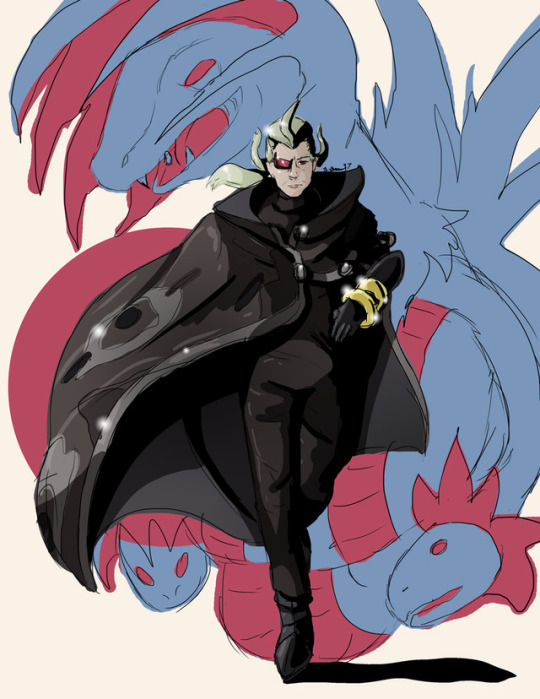
PokéDec Challenge Day 29: Favorite Villain
Obligatory disclaimer that while I adore Ghetsis as a sexy and emotion-provoking villain, I do not condone his actions, as they are incredibly manipulative and vile. For those who haven’t played the game, let me explain (Pokémon Black & White spoilers to follow): Ghetsis found an orphan living among pokémon in the wilderness, and took him into his care. Noticing that the boy had a magical sort of empathy and a genuine pureness of heart, Ghetsis took advantage of this and only let the boy spend time with pokémon who had been abused by humans. Over time, the boy learned to distrust most people and desire a separation between humans and beasts. Ghetsis planned all this so that the boy, N, could appeal to the ancient [alien?] dragons of Truth and Ideals and become the new King of Unova. But really, it would be Ghetsis pulling the strings and using the dragon’s power via N. And with the population of Unova forever separated from the support of pokémon companions, there would be nothing to stop him from using the dragon’s power for total, violent control. Ghetsis’ scheme is the very definition of the “long con;” N is somewhere in his 20′s when the game takes place, though has been sheltered enough to maintain somewhat juvenile personality traits. Oh, and when N confronts him at the end, Ghetsis calls him “a freak without a human heart.” So yeah. Dad of the year, am I right?
On a different note, I don’t remember what all monsters were in his party, but I do remember the Hydreigon. I remember getting my rear handed to me by it and being mad that it was such a low-leveled Hydreigon, because at 54 it should have still been a Zweilous, a monster considerably easier to defeat. But hey, it wouldn’t be a final boss without a few unexpected tricks, right?
On a different different note, isn’t the name “Hydreigon” cool? Its previous forms, Deino and Zweilous, also contain German numbers in their names. As you might expect, Hydreigon has 3 heads, Zweilous 2, and Deino 1. Interestingly, these names are only in the English version of the game. The German version refers to them as Trikephalo, Duodino, and Kapuno (according to Bulbapedia).
Tomorrow: Favorite Z-Move
#Ghetsis#pokevillains#PokeDec 2017#Pokecember 2017#PokeDec#Pokecember#December Pokemon Challenge#digital art#fanart#handsome characters#favorite villain#G-Cis#Ghetsis Harmonia#G-Cis Harmonia
64 notes
·
View notes
Photo
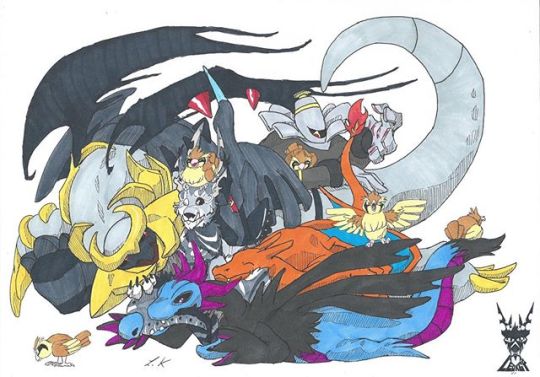
My Favorit Team Giratina, Trikephalo, Glurak, Zwirrfinst, Zekrom and TAUBSI. Omg I love Pidgeon so much. #Game #videogames #playstation #xbox #pc #gaming #virtual #digital #gamer #games #pokemon #pokemondetectivepikachu #giratina #pigeon #pigeot #dragon #ghost #team — view on Instagram http://bit.ly/2Hgy1HU
0 notes